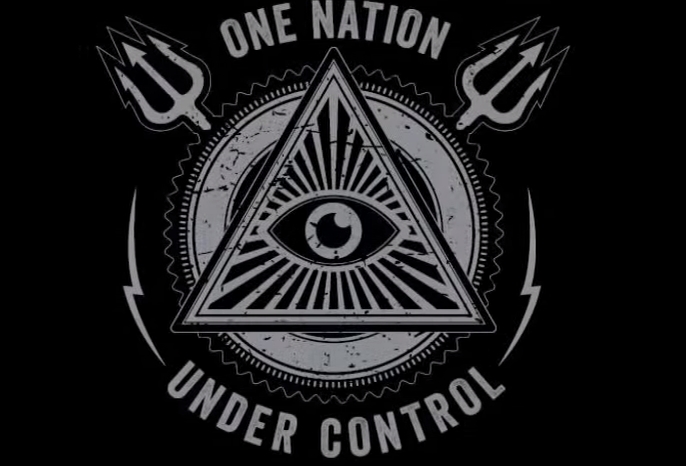
- Mattias Desmet's "The Psychology of Totalitarianism" focuses on a modern, tech-driven totalitarianism, contrasting with past dictatorships.
- Governments are increasing control over private lives, silencing dissent and suppressing alternative viewpoints.
- Desmet discusses mass formation, a psychological process that undermines individual thinking and promotes collective behavior.
- The 2020 pandemic highlighted this new totalitarianism, with lockdowns, "scientific" mandates, and harmful policies driven by mass formation.
- To fight this, Desmet calls for embracing uncertainty, empathy, and individual creativity to transcend a mechanistic worldview.
In his profoundly relevant book, "The Psychology of Totalitarianism," Mattias Desmet offers a chilling analysis of how totalitarianism is not just a relic of the past but a subtle and pervasive force in contemporary society.
Desmet's journey begins with a realization: A new form of totalitarianism was quietly taking root, driven by technological advancements and bureaucratic control. Unlike the historical totalitarian regimes led by charismatic dictators like Stalin or Hitler, this new form of totalitarianism is characterized by the unassuming figures of bureaucrats and technocrats.
Governments have been gradually tightening their grip on private lives, often justified by the need for security in the wake of events like the 9/11 attack. This erosion of privacy and the silencing of alternative voices, particularly in debates about climate change, have created a fertile ground for a hyper-strict governmental demand from within the population itself.
The rise of "woke" culture and the climate movement has further fueled this demand, deeming traditional methods inadequate for addressing perceived threats like terrorism, climate change, and viruses.
To understand this new totalitarianism, Desmet delves into the psychological process of mass formation, a form of group hypnosis that erodes ethical self-awareness and critical thinking. This process is insidious, subtly influencing individuals to sacrifice personal interests for the collective, become intolerant of dissent, and accept pseudo-scientific propaganda. It transcends logic and reason, leading to behaviors that are often shocking.
The replication crisis in scientific research, which began in 2005, exposed significant flaws in the scientific community. Up to 85 percent of research papers in some fields were found to be reaching incorrect conclusions, yet most researchers remained confident in their methods.
This crisis highlighted a fundamental flaw in the mechanistic-materialistic view of the world, which reduces everything to numbers and statistics, creating a "scientific fiction" that bears little resemblance to reality. This scientific fiction, Desmet argues, has fueled the rise of totalitarianism by eroding the ability to distinguish between fact and fiction.
The coronavirus crisis of 2020 exemplified the dangers of this new totalitarianism. The world witnessed unprecedented lockdowns, with countries following China's example and placing large populations under house arrest. The transfer of power to expert virologists, intended to provide accurate "scientific" information, revealed its own set of flaws. The statistics and policies were riddled with mistakes, and the promises of freedom after vaccinations were often unfulfilled. The reliance on numbers created an illusion of objectivity, blinding people to the subjective nature of the data and leading to policies that were more destructive than the virus itself.
The coronavirus crisis also highlighted the psychological dynamics of mass formation. Conditions such as widespread loneliness, lack of meaning and free-floating anxiety made the population vulnerable to the narrative of a deadly virus and the promise of control through lockdowns and vaccines. This process provided a psychological gain, as the anxiety was linked to a specific cause, and society regained a sense of coherence and meaning through a common struggle. The leaders of the masses, driven by a fanatical belief in the ideology, played a crucial role in this process, often blind to the absurdity and destructiveness of their actions.
Desmet's message is clear: To combat this new totalitarianism, we must transcend the mechanistic worldview that has brought us to this point. This involves embracing the uncertainty and complexity of life, recognizing that the essence of things is not rationally knowable.
We need to cultivate a new form of knowledge based on empathy and resonance with the world around us, valuing individuality and creativity over conformity and control. This means letting go of the illusion of control and embracing the art of living with uncertainty.
In "The Psychology of Totalitarianism," Desmet provides a critical and thought-provoking analysis of how totalitarianism is evolving in the modern era. Ultimately, the choice is ours: will we continue down the path of control and conformity, or will we embrace a new way of being?
Watch this video about Mattias Desmet's book "The Psychology of Totalitarianism."
This video is from the BrightLearn channel on Brighteon.com.
Sources include:
Please contact us for more information.

















